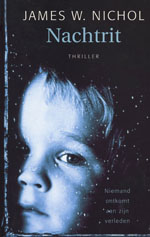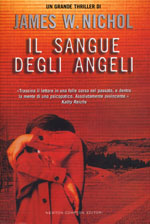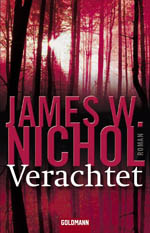In 701 B.C. the Assyrian empire was in its ascendancy. It had already vanquished the kingdom of Israel to the north including the capital at Samaria. It then prepared an assault on Judah and its capital at Jerusalem.
But in one of those significant events that changes the course of world history, Assyria was repelled. Jerusalem was saved until 586 B.C. when the Babylonians sacked the city, forcing its leadership class into exile.
Henry Aubin, in a major feat of scholarship, determines that Jerusalem was aided by a Kushite army from Africa which had marched northeast from the Nile valley. While the Bible attributes the Assyrian retreat to an angel and secular commentators cite pestilence, Aubin, in a meticulously documented work, demonstrates that an alliance with the African nation of Kush bolstered Jerusalem’s defences.
Kush, also known as Nubia, was located in what is now southern Egypt and northern Sudan. A monarchy that existed for more than 1000 years, from 900 B.C. to A.D. 350, Kushites held sway over Egypt from 712 B.C. to about 660 B.C. Of Egypt’s 31 dynasties, this, the 25th Dynasty, is the only one that all scholars agree, was black.
The commander of the Kushite expeditionary force was Taharqa (or as the Bible calls him Tirhakah). This Kushite prince, who had his own interests in halting Assyrian expansion, likely caught the aggressors by surprise as they prepared their siege of Jerusalem.
Aubin offers a thrilling military history and a stirring political analysis of the ancient world. He also sees the event as influential over the centuries.
The Kushite rescue of the Hebrew kingdom of Judah enabled the fragile, war-ravaged state to endure, to nurse itself back to economic and demographic health, and allowed the Hebrew religion, Yahwism, to evolve within the next several centuries into Judaism. Thus emerged the monotheistic trunk supporting Christianity and Islam.

Midnight Cab, German

Midnight Cab, Dutch

Midnight Cab, Italian

Transgression, German

James Nichol on his novels
I have been writing with intent, as I like to say – that is, to make a profession of it – since I was nineteen. I began by writing stage plays, inspired in particular by Edward Albee who was just coming into his own then and whom I was lucky enough to hear talk about all things theatrical at the University of Toronto sometime around 1960, I think. And of course there were other influences like Jean Genet and Beckett and Ionesco in Europe…Eugene O’Neil, Tennessee Williams, Arthur Miller in the States. As far as I knew then, there was no such thing as a Canadian playwright, at least not a prominent one…with perhaps the exception of Robertson Davies.
I was lucky enough to sell my first play, a radio play inspired by Dylan Thomas’s Under Milkwood, to the CBC when I was twenty-three. At age thirty I took a flyer with my wife and our three little boys and went full-time, writing for the theatre, radio, and also teleplays and screenplays. By some miracle of good fortune it all worked out. A ton of radio plays, fourteen stage plays that have been professionally produced across the country, several stand-alone original television plays and one screenplay that actually got produced and had a theatrical release.
Well, that was my past life. Which brings me to about nine years ago when I decided to give dialogue a rest and began to contemplate a foray into the novel regime. I remember sitting in a patch of sunshine behind our house up in Huron County with an empty note pad in my lap and writing down… Okay. But now what?
At first the choices before me seemed annoyingly infinite but it wasn’t too long before the realistic business side of my brain had persuaded the goofy side that I should write a novel based on a mystery series I’d written for CBC radio called Midnight Cab. It had become quite popular, having been featured on Peter Gzowski’s Morningside show for three years.
I reasoned that it already had a national profile and this might help me find a publisher. This turned out to be a smart move, not so much because the series had a profile (in Canada? Forget about it, apparently) but because I knew the characters and the milieu so well it helped me cross over that very steep learning curve from a lifetime of writing dialogue to writing prose fiction – a much, much different undertaking I soon realized.
The second smart thing I did was to get in contact with literary agent Beverley Slopen whose immediate enthusiasm for the project delighted and energized me and who kept me on track whenever I became discouraged through the long writing process.
Midnight Cab was subsequently published by Knopf Canada in 2002 and went on to be published in about nine other countries. To date it has sold close to half a million copies in Germany. It was nominated for a Gold Dagger in the U.K. and won the Crimewriters of Canada award for Best First Novel, a level of success I would never have imagined that first day I took out my notepad and sat down in that patch of sun.
Unforeseen consequences? I was immediately typecast as a writer of psychopathic thrillers – or perhaps a psychopathic writer of thrillers. Although I really do love the mystery form, I am at least as equally interested in character and place and trying to say something meaningful while I’m at it.
To that end I’ve since written two more novels. The first is called Transgression, published by McArthur & Company in 2008 as well as by Goldmann Random House in Germany; this Fall it’s to be published by HarperCollins in the United States.
For some reason both Transgression and Death Spiral are set during and just after WWII. No, I didn’t fight in it but I was born in 1940 so my earliest memories are all about growing up in a small Ontario town, Paris, when the town seemed full of boisterous and glamorous returning soldiers as well as a few exotic creatures called war brides, and, a little later, an influx of Displaced Persons who looked very strange to me, people who had been held in refugee camps in Europe and who were desperately looking for a new life here in Canada.
Another early influence at this time was my father who was the art director of a large advertising and printing company in town, The Walker Press by name. I still have vivid memories of all the war bond posters he worked on and all the war-themed oil paintings he created in his makeshift studio in our house. They’re emblazoned on my mind, actually. I think they haunt me still not least of all because sometimes my father used me and my sister as models. So I suppose it’s not so surprising that that’s where my mind went casting about for something large and meaty to write about after Midnight Cab.
Transgression is the story of a young French girl who falls in love with a German soldier during the occupation of France and all the consequences that flow from that somewhat innocent first transgression. The last third of the novel is set in the Paris, Ontario of my early memories where my heroine Adele Georges arrives on the arm of her Canadian soldier husband hoping to escape the dark secrets of her past.
In Death Spiral I’m back in Paris, Ontario again, this time for the whole book. It’s January 1947 and a young spitfire pilot by the name of Wilf McLauchlin has finally arrived back home after a long convalescence in hospitals in France and England as a result of being shot down over Germany a few weeks before the end of the war. He wants nothing more than to rejoin the university life he was so happily leading before he joined up with the air force. He just wants to rediscover his enthusiastic, buoyant old self, the old Wilf McLauchlin, and to get on with his life. But he’s been wounded both outside and inside and it’s not so easy.
He begins his re-entry into civilian life by staying in the old family home, helping out his father in his law office downtown. It’s here that he meets his father’s new legal secretary, the strange and almost beautiful Carole Birley, a young woman he’s not much interested in at first but who soon becomes the only person he trusts, and, more importantly, the only person who still trusts him. Almost as soon as he arrives back in Paris, a series of seemingly unconnected murders wrack the town. The last homicide the town had experienced was back in the 1880s. Now in quick succession there are four and the town goes quickly hysterical.
Wilf finds himself caught in a kind of Twilight Zone. Two of the victims are clients of his father’s. He feels compelled to solve these cases. He does. Or thinks he does. He solves the other two, as well, half in co-operation with the local police and half in opposition to them. He can’t stop himself from getting involved. And the deeper he goes, the more he begins to get the very strong feeling that there is some kind of connection between all these murders and himself, that somehow everything is beginning to point back to Germany, to that day when he was fighting for his own life ten thousand feet up in the sky, the day he was shot down. Finally he discovers that the almost beautiful Carole Birley, whom he loves desperately by now, is targeted as the fifth victim.
In retrospect, I now think of my three novels as being interconnected. In Midnight Cab I invented a psychopath of the literary kind effective within the world of the story but perhaps not someone you’re likely to meet in real life.
In Transgression I moved to a story where a young girl had to confront the harm we do to each other in real life, both within families and on a stage as large as a world war. It was about the effect that this universal impulse to do harm had on her.
And in Death Spiral I’m trying to confront this impulse itself. Look at it squarely. Face the very nature of this implacable beast, so to speak.
So this is the impetus for and the premise of my new book Death Spiral. I think once you’ve had a chance to look at it, you’ll feel that it both has something intriguing to say and that it fits very comfortably within the mystery/thriller genre. And I think you’ll find that it’s actually funny in places.